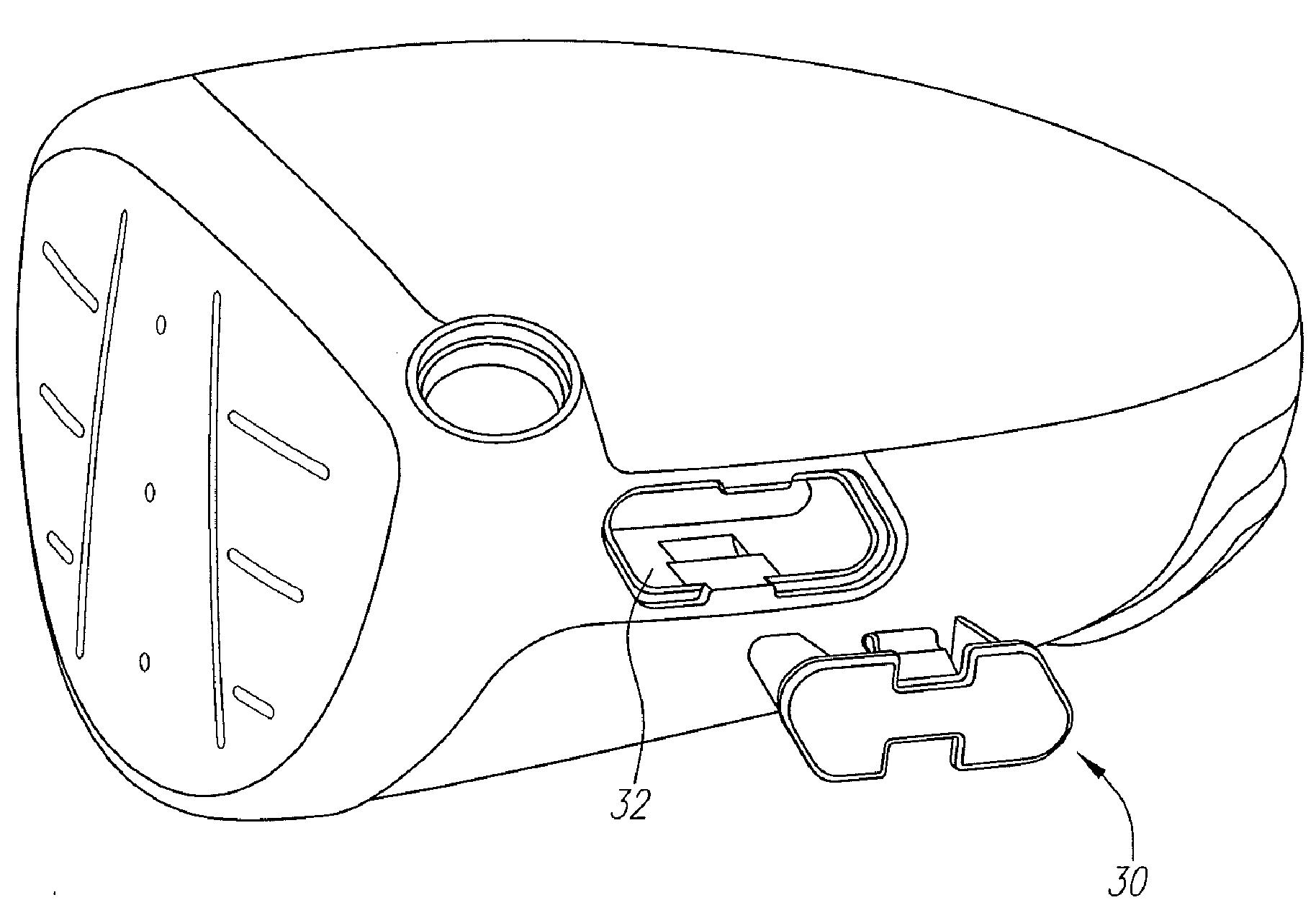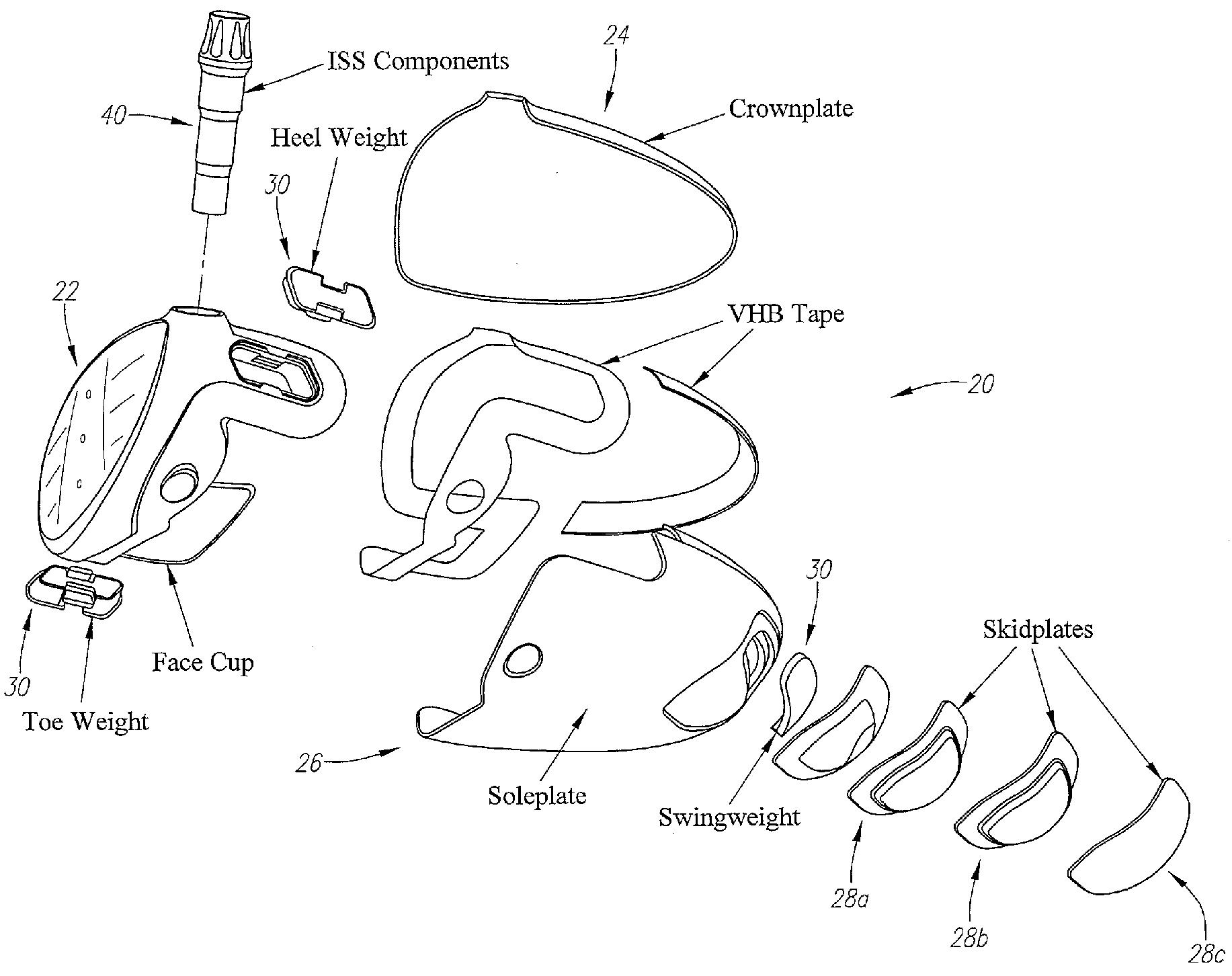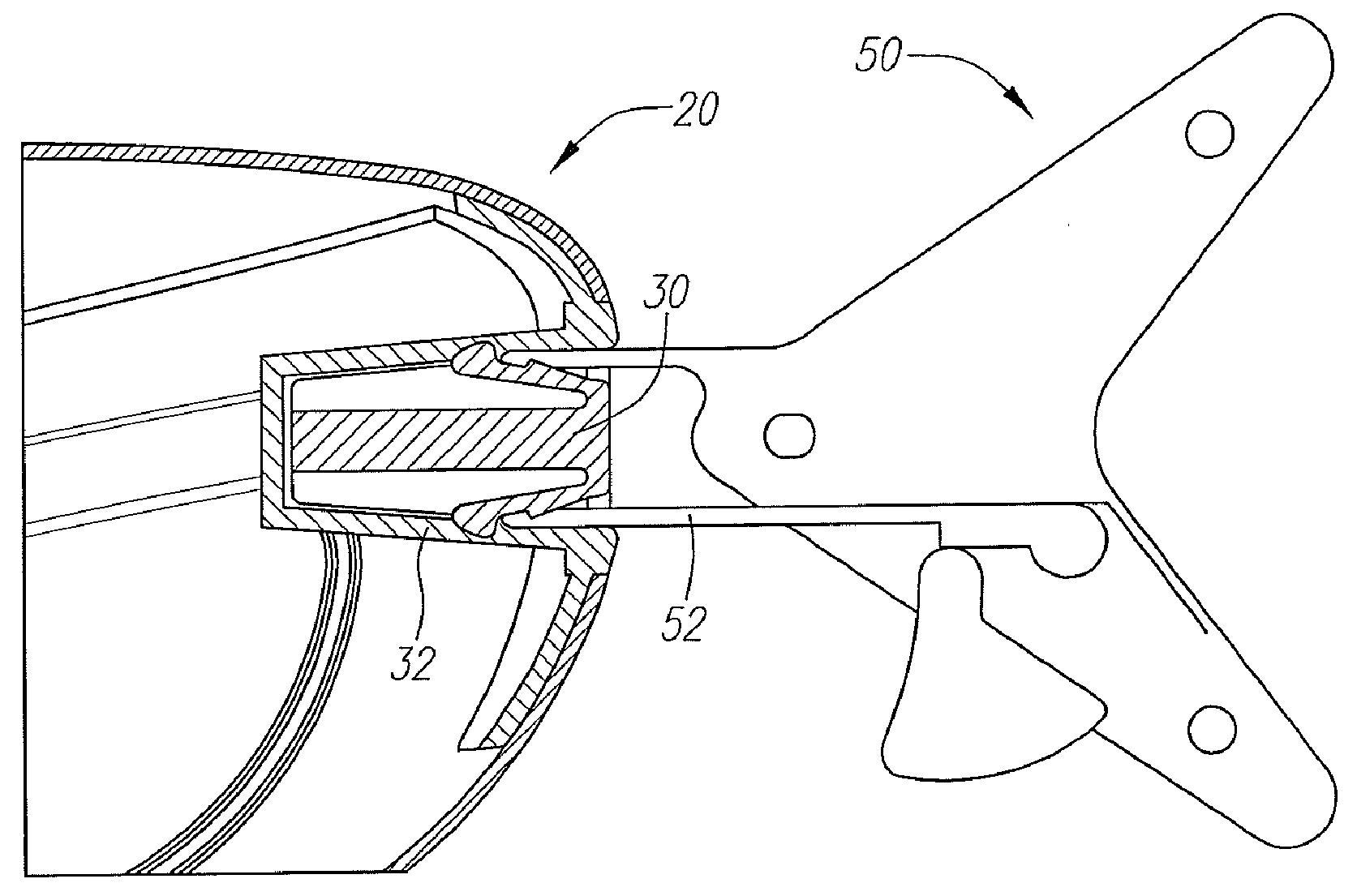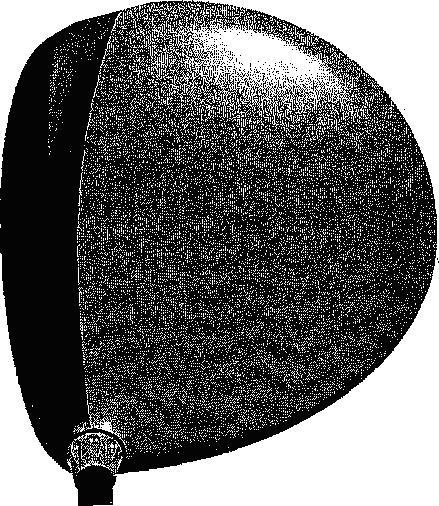Is Callaway Getting into the Movable Weight Technology (MWT) Game? Is this Callaway’s new Wing Notch Weighting (WNW)?
Roughly one year ago I noticed that Callaway had filed a trademark application for the WING NOTCH WEIGHTING mark. What could it be? Well, this week a Callaway patent application published that may give us a look at the Wing Notch Weighting™ system that may be coming out in the new FT 11, or perhaps the FT-MACH 11, FT-JET, or FT-BLACKHAWK. How many of you clicked on those links thinking you were going to see actual clubs? Keep reading, you will see one. But seriously, one thing is clear, the FT line of products will be around for a while.
The patent application that became public yesterday published as US Pub. No. 20090143167 titled “Golf Club Head With Adjustable Weighting, Customizable Face-Angle, and Variable Bulge and Roll Face.” The application summarizes the invention as:
The application goes on to provide some interesting information:
Now, check out this design.





Interesting. Callaway must be tired of all the TaylorMade MWT advertisements; but will this design make it to market?
Dave Dawsey - The IP Golf Guy
PS – click HERE to check out other golf driver intellectual property
The patent application that became public yesterday published as US Pub. No. 20090143167 titled “Golf Club Head With Adjustable Weighting, Customizable Face-Angle, and Variable Bulge and Roll Face.” The application summarizes the invention as:
A customizable golf club head is disclosed herein. The customizable golf club head includes a face component having a face and a flange, a crown-plate attached to the flange, a sole-plate attached to the flange, a skid-plate attached to the sole-plate, a swing-weight member, and a plurality of removable weight members with each of the plurality of weight members positioned within a pocket of the plurality of pockets.
The application goes on to provide some interesting information:
[0006] Currently, customization of drivers to help golfers hit better (longer, straighter, pleasing trajectory) shots is relatively new to the marketplace. Such customization currently includes: different shaft flexes and lengths, different lofts, and different head weighting scenarios. Currently most heads come with the head weighting pre-built into the head such that it cannot be changed. There are some companies that allow screw-in weights that can be changed by the golfer or by the fitting personnel to change a drivers weight distribution (Center of Gravity: CG) to promote desired ball flight tendencies. There currently exists no method to alter the driver's face angle at address, which visually gives the golfer an indication of the clubs orientation or hit tendency. In addition, current driver models have higher Moments of Inertia (MOI) that correspondingly need a flatter face to hit straighter shots. This flatter face is not as cosmetically appealing as the rounder faces of previous driver designs with lower MOI values.
[0007] The primary purpose this invention is to effectively incorporate the following three design features into a driver design. First, visible and removable weights to adjust the center of gravity of the club head using a new and novel method of affixing these weights to the club head. Second, different height skid plates on the sole to alter the club's face angle at address (as it sits naturally on the ground). Third, a unique face design using bulge and roll values at the center region of the face for hitting straighter and more consistent shots, while having a different bulge and roll at the edge of the face to promote a more pleasing appearance to the golfer. In providing the above design features into a club head design, the golfer should have an improved driver suited to his/her needs, abilities, and preferences to hit better shots.
[0035] The golf club head 20 of the present invention preferably has multiple weight members 30 with various masses. In a preferred embodiment, the weight members 30 include a 15 g weight member, a 10 g weight member, and a 5 g weight member. The draw bias CG location of the golf club head 20 of the present invention is enabled by placing the 15 g weight member 30 in the heel pocket and the 5 gram weight member 30 into the toe pocket 32. The neutral bias CG location golf club head 20 of the present invention is enabled by placing the 10 g weight members 30 into both the toe and heel weight pockets 32. The fade bias CG location golf club head 20 of the present invention is enabled by placing the 5 g weight member 30 in the heel pocket and the 15 gram weight member 30 into the toe pocket 32.
[0036] The standard skid-plate 28 of the golf club head 20 is designed to allow for the golf club to sit at address at the designed face angle. Two additional skid-plates 28 allow for a 1.degree. open face angle and a 2.degree. open face angle. One of the three skid-plates is permanently affixed to the golf club head 20 after the golfer has temporarily affixed each of them on the golf club head 20 of his or her choice and made a selection of which skid-plate 28 is preferred. The skid-plates 28 have approximately the same weight so the swingweight and performance of the golf club will remain unchanged regardless of which skid-plate 28 is selected to be affixed to the golf club head 20.
[0037] The variable bulge and roll face 23 is a combination of two faces. The outer face is made with cosmetically pleasing smaller bulge and roll values and is trimmed in the center region by a performance-based inner face that has larger bulge and roll values. The transition at the intersection boundary between the outer and inner faces is made smooth and undetectable by a tangential fillet blend which connects them with a known radius value. The entire face 23 of the golf club head 20 is a combination of a bulge and a roll impact face that works best for the majority of hit locations while outside of this impact region, a face that blends more acceptable with the sole, side, and crown surfaces is used.
Now, check out this design.





Interesting. Callaway must be tired of all the TaylorMade MWT advertisements; but will this design make it to market?
Dave Dawsey - The IP Golf Guy
PS – click HERE to check out other golf driver intellectual property

Comments